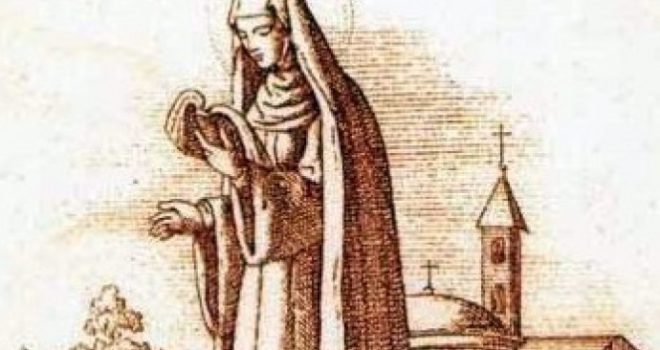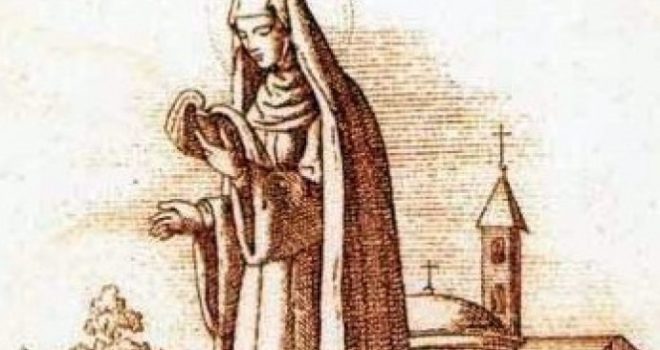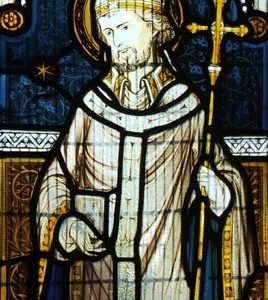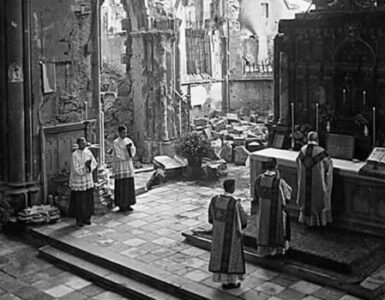Saint Macrina the Younger was from Cappadocia in Turkey and came from a family of saints. Her parents were Saints Emmelia and Basil the Elder. She was the oldest of ten children and largely responsible for the spiritual formation of her family, including three of her brothers who are Saints: Basil the Great, Gregory of Nyssa, and Peter of Sebastea. She was also the granddaughter of Saint Macrina the Elder.
Educated, especially in the Bible, Saint Macrina the Younger is known for her rational philosophical insights. She is also remembered for her loveliness, “force of character,” and holiness. Although it was arranged for her to marry a legal advisor, she rejected marriage and consecrated her virginity to God. Saint Macrina lived at home, assisted with her younger siblings, and aided her family with her domestic
skills.
After her siblings grew up, Saint Macrina persuaded her mother to give up their belongings, turn their home into a monastery, and take vows with her. Several of their servants remained and became part of their religious community. This inspired her brother Saint Basil the Great, whom she had helped direct, to found an order of monks. Following her mother’s death, Saint Macrina became the head of the community.
She once suffered from a tumor on her breast and, hesitant to see a surgeon, prayed fervently to God for healing. She was cured and is regarded as the patroness of oncoplastic surgery. Known as a wonder worker and ascetic, Saint Macrina died in 379 AD. Her brother St. Gregory wrote Life of Macrina about her spirituality, their family, and her life of heroic virtue. St. Gregory also wrote a dialogue On Soul and Resurrection about her philosophy where, as she lay dying, she defended the immortality of the soul using logical arguments. He once referred to her as “father, teacher, guide, and mother.”












